Key takeaways:
- Effective time management is about prioritizing tasks that truly matter, leading to reduced stress and a sense of control.
- Techniques like the Pomodoro Technique and time-blocking can enhance productivity and create a structured approach to tasks.
- Establishing daily priorities and setting boundaries around work hours are crucial for maintaining a healthy work-life balance.
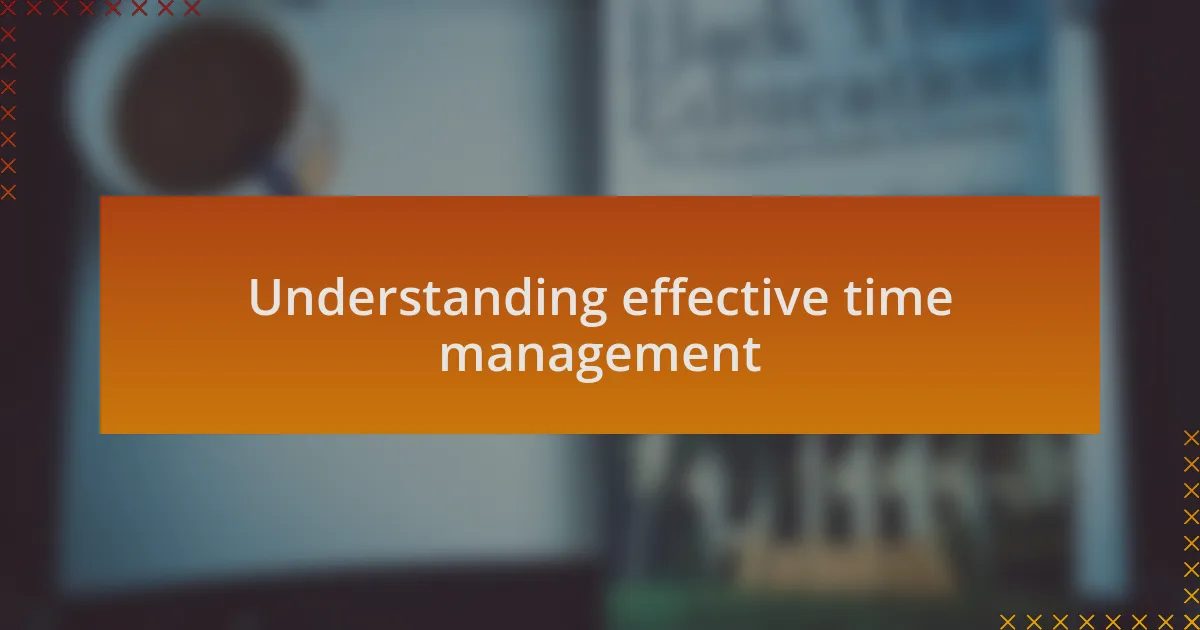
Understanding effective time management
Effective time management is not just about scheduling tasks; it’s about prioritizing what truly matters. I still remember the overwhelming stress of juggling coursework, personal commitments, and part-time jobs. It was during those chaotic weeks that I realized focusing on my highest priorities made a world of difference.
I often ask myself: where do I invest my time, and is it yielding the results I hope for? By reflecting on this question, I discovered that cluttered calendars can distract from meaningful accomplishments. The times I sat down to evaluate my activities led me to cut out unnecessary meetings and distractions, freeing up precious hours for the things I genuinely enjoy.
An emotional insight I’ve gained through this journey is that effective time management fosters a sense of control and confidence. When I began to set realistic goals and break tasks into smaller, manageable steps, I felt a surge of motivation. It’s incredible how empowering it is to check off even tiny achievements because they build momentum and create a positive feedback loop in my life.
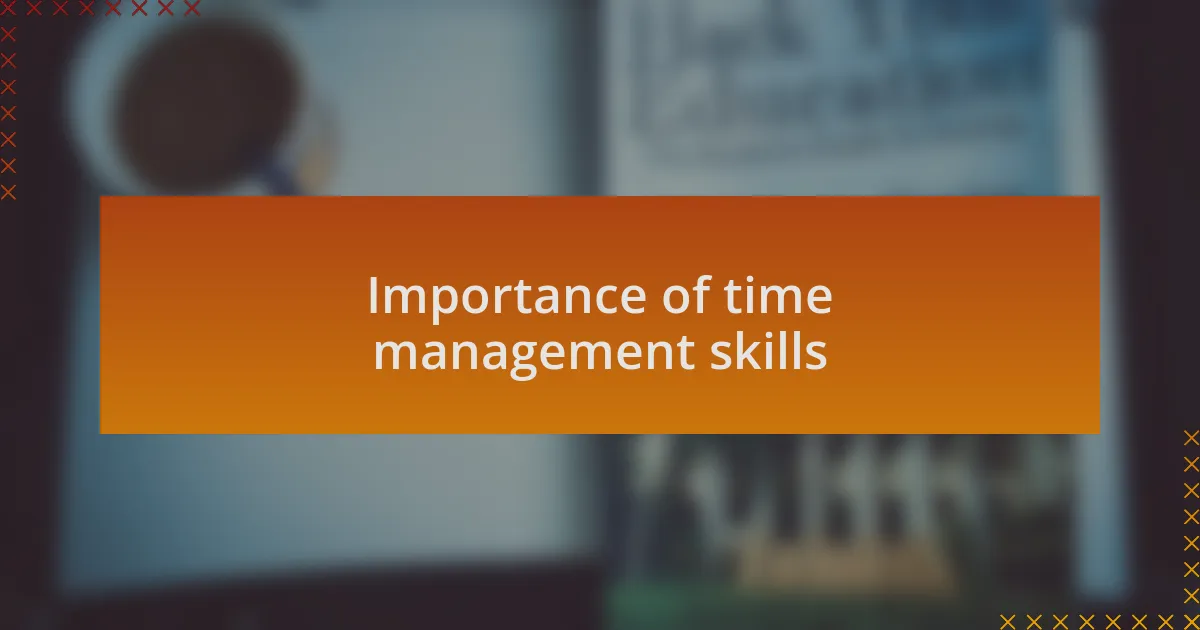
Importance of time management skills
Effective time management skills are vital because they allow us to navigate our responsibilities while reducing stress. I recall a particularly busy semester when balancing coursework and my part-time job seemed impossible. That experience taught me the importance of having a structured approach. When I started prioritizing tasks and allocating specific time slots for studying, I discovered that I not only met deadlines but also had more time to relax and recharge.
Moreover, mastering time management helps in building stronger relationships. I used to feel guilty about missing family gatherings due to my unpredictable schedule. By learning to manage my time better, I could plan my commitments around those important moments, creating memorable experiences instead of frazzled apologies. Doesn’t it feel good when we can truly be present with loved ones?
Lastly, effective time management leads to significant improvements in productivity and overall well-being. I remember a time when I worked late hours to finish a project, only to realize that a more organized plan could have saved me countless stress-filled nights. This realization reinforced that by strategically allocating my time, I could harness my full potential, turning what once felt like endless chaos into a manageable routine. How have you managed your time in the past, and what changes did it bring in your life?
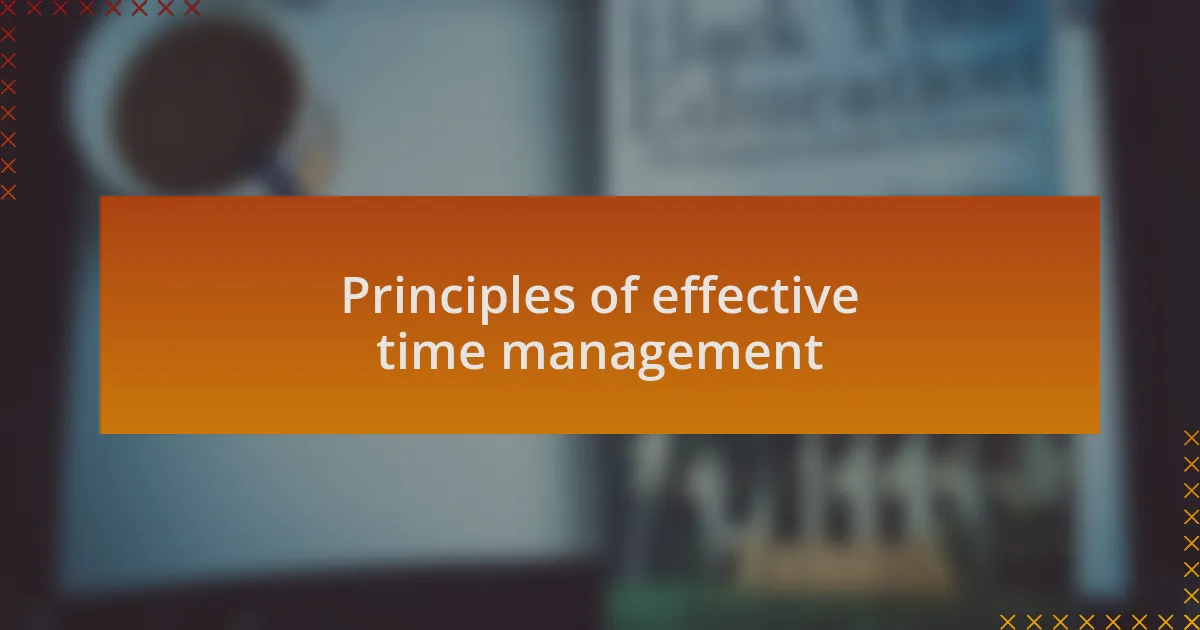
Principles of effective time management
Effective time management is rooted in the principle of prioritization. I learned this firsthand during a project that seemed to stretch endlessly. Setting clear priorities helped me focus on tasks that truly mattered. I found myself not just working harder, but smarter, effectively channeling my energy into what needed attention most. Have you ever felt overwhelmed by too many tasks? Simplifying the list can be a game-changer.
Another fundamental principle is setting realistic goals. I remember an instance when I aimed to complete an entire month’s worth of readings in one weekend. Predictably, I failed miserably and was left feeling disheartened. It was a crucial lesson in understanding that manageable goals lead to more consistent progress. Have you ever considered how small steps can lead to significant accomplishments?
Lastly, embracing flexibility is essential for effective time management. I once had my entire week planned out, only to be thrown off by unexpected commitments. Instead of panicking, I learned to adapt and shift my priorities. That experience taught me the value of being open to change while still maintaining my focus. Flexibility not only reduces stress but also encourages creativity. How do you handle unforeseen changes in your schedule?
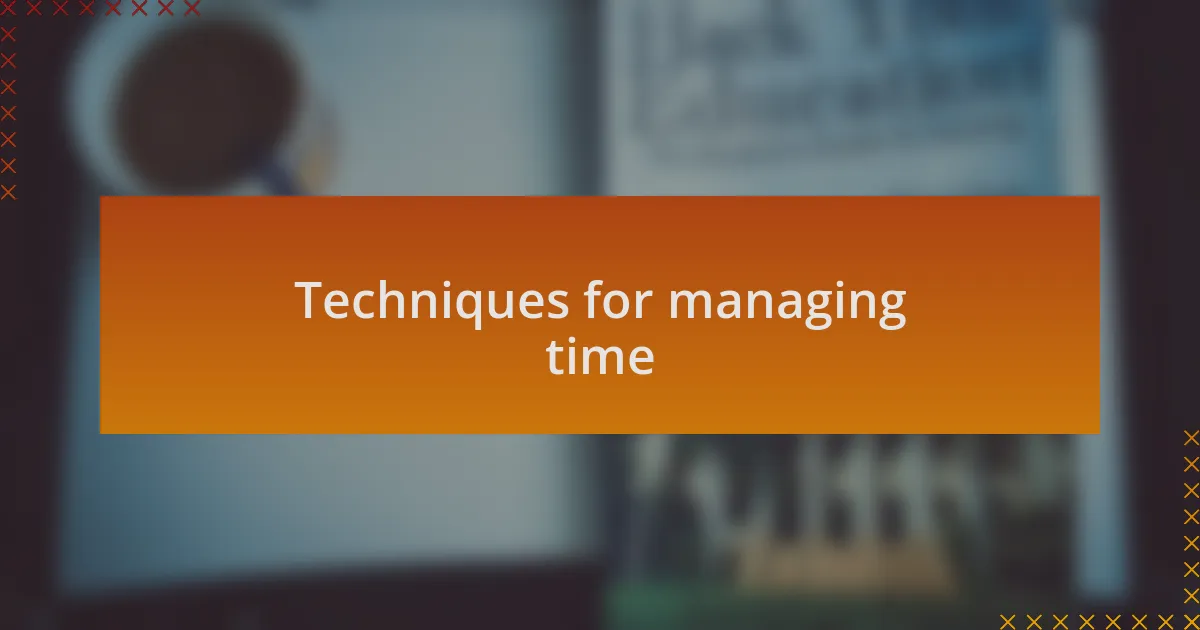
Techniques for managing time
One effective technique I swear by is the Pomodoro Technique, where you work for 25 minutes, then take a 5-minute break. I remember struggling with a massive report and feeling stuck halfway through. Once I applied this method, I noticed that those short bursts of focused work not only improved my productivity but also kept me refreshed. Have you ever experienced that sense of clarity after a brief pause?
Another handy approach is to use a time-blocking strategy. I found success in allocating specific time slots for tasks on my calendar. This technique transformed my chaotic schedule into a structured plan, allowing me to visualize my day better. When I focused on one task at a time without distractions, I felt a surprising boost in my overall efficiency. Have you thought about how a well-planned day can steer you toward accomplishment?
Lastly, regular reflection on how I spend my time has been invaluable. Journaling about my activities helped me identify patterns—like where I wasted precious hours scrolling through my phone. This awareness was a real eye-opener, encouraging me to make conscious choices about how I allocate my time. How often do you evaluate your daily routines to ensure they align with your goals?
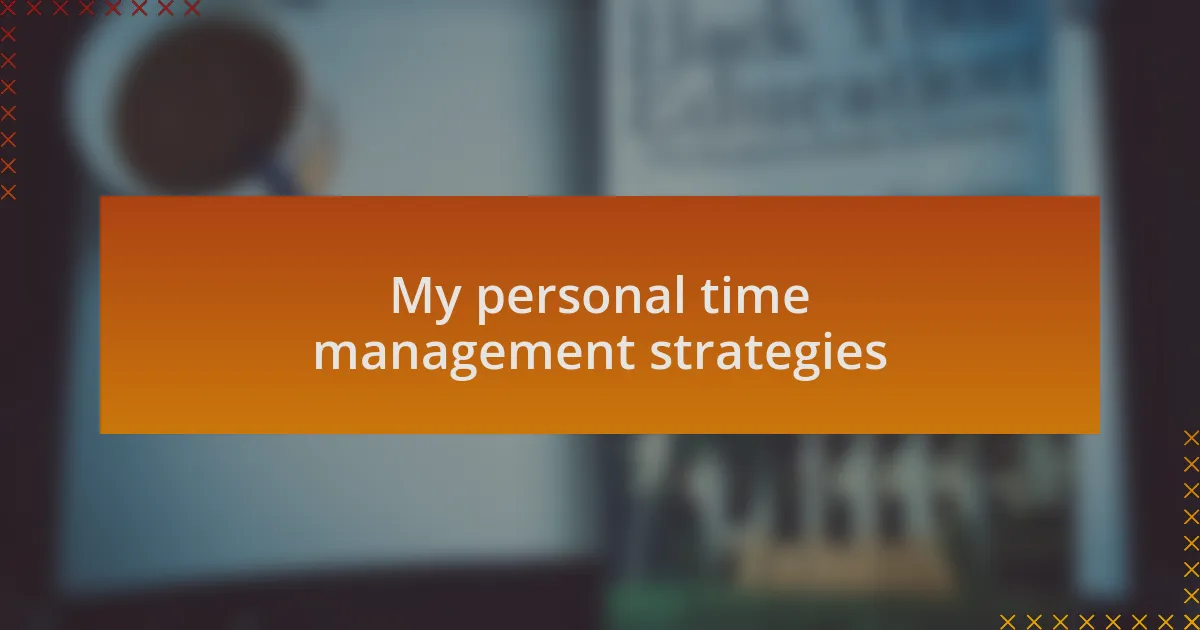
My personal time management strategies
One strategy that has greatly helped me is establishing a daily priority list. Every morning, I take a few minutes to jot down my top three tasks for the day. This simple practice not only gives me clarity but also a sense of purpose as I cross each item off. Have you ever felt the rush of accomplishment that comes with completing a priority?
Another approach I utilize is setting clear boundaries around my working hours. Learning to say no has been essential. Early in my career, I often overcommitted, leading to burnout. By establishing specific start and end times, I create a healthier work-life balance. Have you considered how setting boundaries could enhance your well-being?
Finally, I leverage technology as a tool for time management. I use various apps to track my time and deadlines, which has transformed my workflow. Initially, I was skeptical about relying on digital tools, but now they’re integral to my productivity. Do you use any tools to help manage your time more effectively?